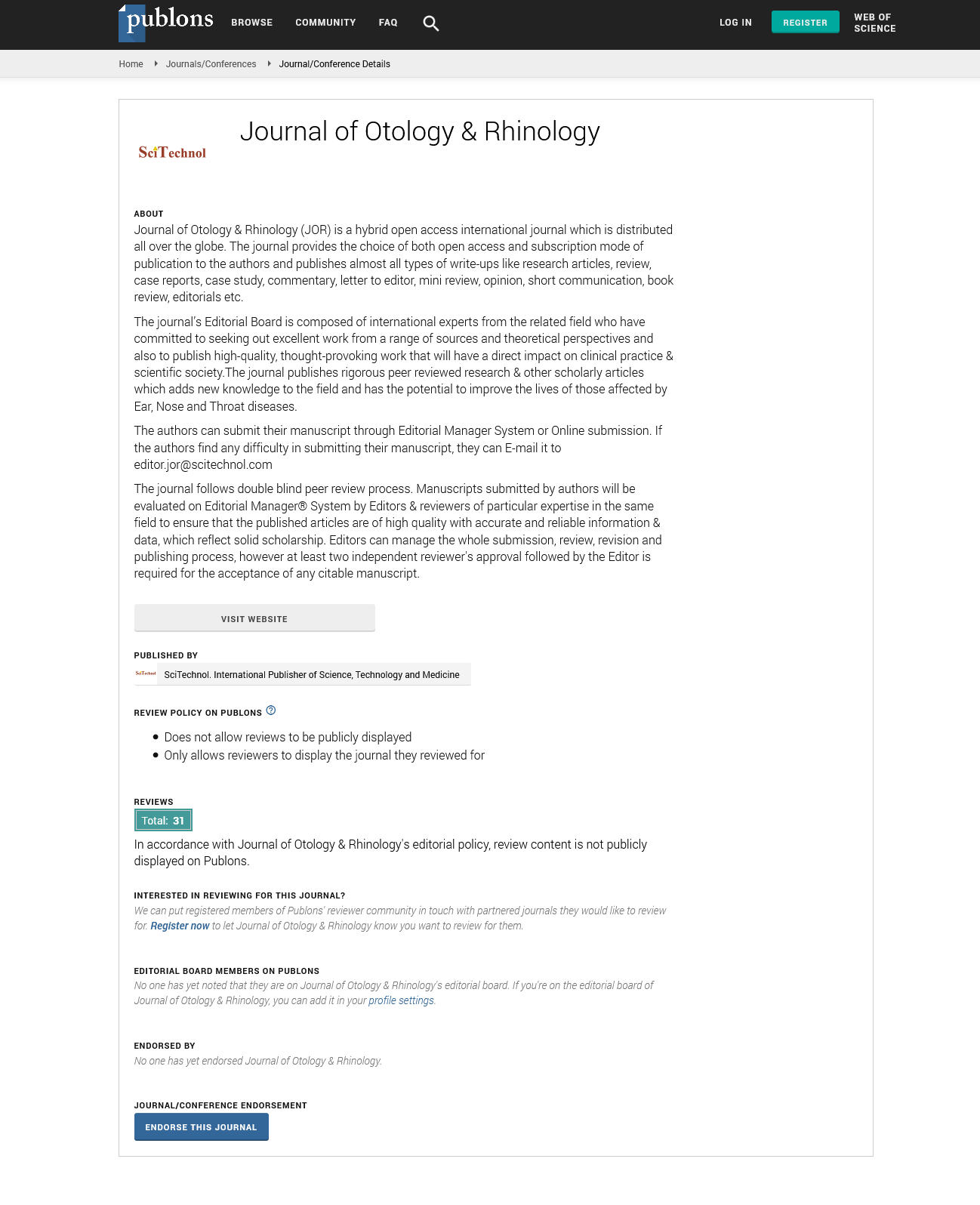Microvascular salvage reconstruction of the anterior cranial fossa utilizing osteocutaneous flaps
Brian Andrews
University of Kansas Medical Center, USA
: J Otol Rhinol
Abstract
Objectives: Reconstruction of the anterior cranial fossa is challenging for a multitude of factors. Composite defects involving forehead skin, anterior skull base/frontal bone, and/or skull base soft tissues are particularly difficult to reconstruct. The ideal reconstruct would restore both bone and soft tissue. The ideal way to perform this reconstruction remains unknown. Methods: A retrospective chart review was performed at a tertiary academic medical center. All patients who underwent microvascular salvage surgery of the anterior cranial fossa from July 2011 through April 2017 were included. Microvascular reconstructions were assessed by type of flap utilized as well as their ability to accomplish surgical goals. Results: Ten subjects were identified who underwent salvage reconstruction utilizing microvascular osteocutaneous free flaps to the anterior cranial fossa. All ten patients had failed prior conventional reconstruction. Nine osteocutaneous radial forearm free flaps and 1 fibula flap were utilized. Defects included frontal bone (n=10), forehead/glabellar skin (n=8), anterior cranial fossa floor (n=5), and dura (n=2). There were no flap related complications and frontal bone, skin, and dura reconstructions were successful in all patients. Two patients developed recurrent pneumocephalus secondary to anterior cranial fossa floor defects several months post-operatively requiring flap repositioning to repair nasal communication. Conclusion: Composite reconstruction of the anterior cranial fossa is a difficult problem. When conventional techniques fail, microvascular salvage reconstruction is sometimes necessary. In our experience, autologous reconstruction utilizing osteocutaneous free flaps is preferable and reliable results can be achieved.
Biography
Brian Andrews, MD/MA is an Associate Professor and the Director of Craniofacial Surgery at the University of Kansas Medical Center in Kansas City, Kansas, USA. He completed residencies in Otolaryngology-Head & Neck Surgery at the University of Iowa and Plastic Surgery residency training at the Combined Harvard Program as well as a fellowship in Craniofacial Surgery at the University of California-Los Angeles (UCLA) under the mentorship of Dr. Henry Kawamoto. His clinical practice focuses on pediatric and adult craniofacial reconstruction as well as basic science research studying neurologic function associated with skull defects and disorders.
 Spanish
Spanish  Chinese
Chinese  Russian
Russian  German
German  French
French  Japanese
Japanese  Portuguese
Portuguese  Hindi
Hindi 


